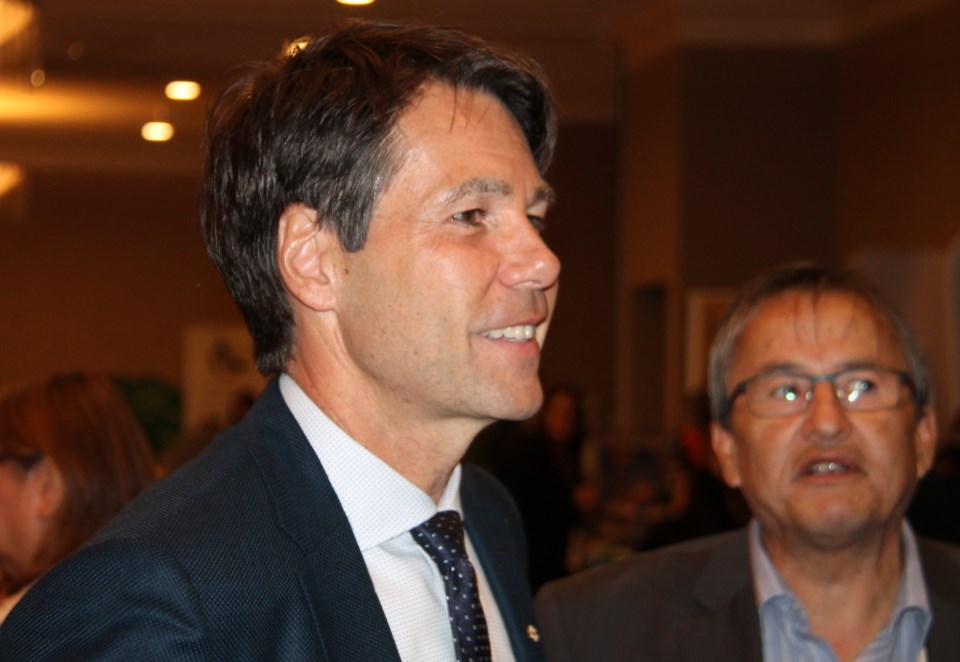Dr. Eric Hoskins, Ontario Minister of Health and Long-Term Care, brought words of reconciliation and financial support for mental health and addictions programs for Indigenous people in communities along the North Shore Thursday morning.
At the Maamwesying North Shore Community Health Services annual general meeting at the Sault’s Delta Hotel, Hoskins announced $2 million over three years for the Pain, Addiction, Mental Health within an Anishnawbek Recovery System program.
The funding will be administered by Maamwesying North Shore Community Health Services.
“This will provide culturally safe and appropriate mental health counselling and treatment services closer to home…this funding will provide access to nearly 16,000 people living in First Nations communities across Lake Huron’s North Shore as well as the urban Indigenous population here in Sault Ste. Marie,” Hoskins said.
The funding will go toward a program known as Beauty for Ashes, delivered over an intensive, five-day period in comfortable residential settings in Garden River and Blind River to adults in order to address the effects of domestic violence and childhood trauma.
It will also go to a mobile clinical support service which will travel directly to Indigenous communities to provide substance abuse treatment.
“People will be able to stay in their communities to access care instead of having to travel to Sault Ste. Marie, or sometimes to Toronto,” Hoskins said.
The Minister said the government will continue to work to provide clean drinking water and appropriate housing in Indigenous communities.
“Today’s announcement is one small step but an important step. Governments have a lot of work to do to prove our commitment to you and gain your trust and respect,” Hoskins said to a large audience gathered in a Delta Hotel reception room.
Later, to a smaller group gathered in a meeting room, Hoskins said “I’m impressed with this (Beauty for Ashes) program.”
The program has had positive results in Alaska, Maamwesying North Shore Community Health Services officials told Hoskins.
“It’s five days and more than counselling. It’s being able to tell really deep stories they’ve never told anyone about, childhood experiences,” said Gloria Daybutch, Serpent River-based Maamwesying North Shore Community Health Services executive director.
That comes with eight weeks of follow up treatment, Daybutch said, with those being healed trained to help others.
As far as substance abuse recovery is concerned, a drug known as suboxone will be used instead of methadone.
Hoskins agreed it is imperative to treat substance abuse as a chronic disease, not addiction, complimenting Maamwesying North Shore Community Health Services as being “ahead of the curve” in their approach.
The funding announced by Hoskins Thursday stems from Ontario’s First Nations Health Action Plan, which will spend $222 million over three years and $104.5 million thereafter to provide Indigenous people with access to culturally appropriate care.
Maamwesying North Shore Community Health Services serves Batchewana First Nation, Garden River First Nation, the Indian Friendship Centre of Sault Ste. Marie, Atikameksheng Anishnawbek, Sagamok Anishnawbek, Serpent River First Nation, Mississauga First Nation and Thessalon First Nation.
